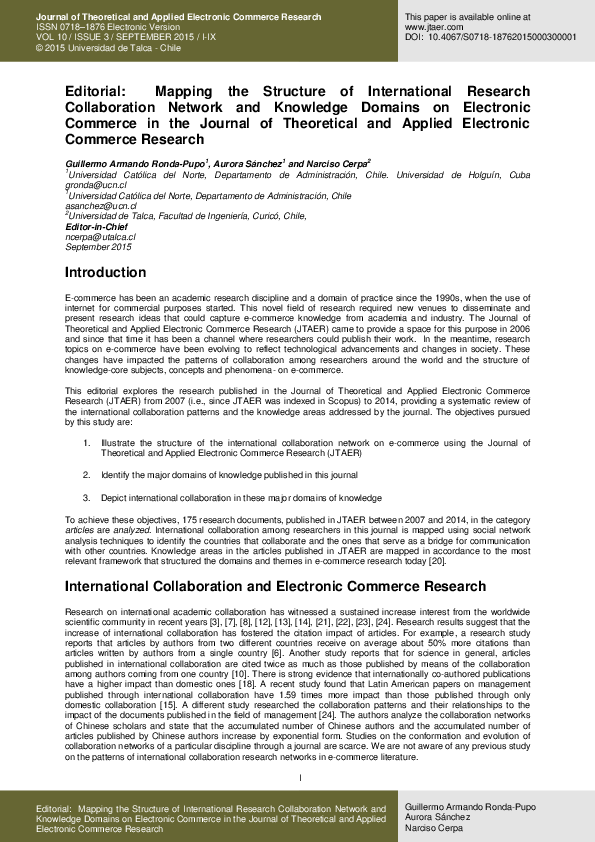Tailoring Garment Fit for Personalized Body Image Enhancement: Insights from Digital Fitting Research
IF 5.1
3区 管理学
Q1 BUSINESS
Journal of Theoretical and Applied Electronic Commerce Research
Pub Date : 2024-04-22
DOI:10.3390/jtaer19020049
引用次数: 0
Abstract
In the context of the Fashion Apparel Industry 4.0, a transformative evolution is directed towards the Online Apparel Mass Customization (OAMC) strategy, which provides efficient and personalized apparel product solutions to consumers. A critical challenge within this customization process is the determination of sizes. While existing research addresses comfort evaluation in relation to wearer and garment fit, little attention has been given to how garment fit influences the wearer’s body image, which is also an important purchase consideration. This study investigates the impact of garment fit on the wearer’s body scale perception using quantitative research design. A digital dataset of avatars, clothed in varying sizes of T-shirts, were created for the body scale perception experiment, and an Artificial Neural Network (ANN) model was developed to predict the effect of T-shirt fit on body image. With only a small number of garments and body measurements as inputs, the ANN model can accurately predict the body scales of the clothed persons. It was found that the effect of apparel fit on body image varies depending on the wearer’s gender, body size, and shape. This model can be applied to enhance the online garment shopping experience with respect to personalized body image enhancement.量身定制服装,提升个性化身体形象:数字试衣研究的启示
在时尚服饰工业 4.0 的背景下,在线服装大规模定制(OAMC)战略是一个转型发展的方向,它为消费者提供高效和个性化的服装产品解决方案。在这一定制过程中,一个关键的挑战是尺寸的确定。虽然现有研究涉及与穿着者和服装合身度相关的舒适度评估,但很少关注服装合身度如何影响穿着者的身体形象,而身体形象也是重要的购买考虑因素。本研究采用定量研究设计,调查服装合身度对穿着者身体尺度感知的影响。为进行人体尺度感知实验,我们创建了一个穿着不同尺寸 T 恤的化身数字数据集,并开发了一个人工神经网络(ANN)模型来预测 T 恤合身度对身体形象的影响。只需输入少量服装和身体测量数据,人工神经网络模型就能准确预测着装者的体型。研究发现,服装合身度对身体形象的影响因穿着者的性别、体型和体形而异。该模型可应用于增强个性化身体形象方面的在线服装购物体验。
本文章由计算机程序翻译,如有差异,请以英文原文为准。
求助全文
约1分钟内获得全文
求助全文
来源期刊
CiteScore
9.50
自引率
3.60%
发文量
67
期刊介绍:
The Journal of Theoretical and Applied Electronic Commerce Research (JTAER) has been created to allow researchers, academicians and other professionals an agile and flexible channel of communication in which to share and debate new ideas and emerging technologies concerned with this rapidly evolving field. Business practices, social, cultural and legal concerns, personal privacy and security, communications technologies, mobile connectivity are among the important elements of electronic commerce and are becoming ever more relevant in everyday life. JTAER will assist in extending and improving the use of electronic commerce for the benefit of our society.

 求助内容:
求助内容: 应助结果提醒方式:
应助结果提醒方式:


